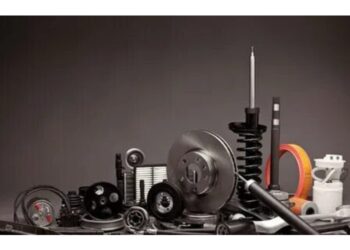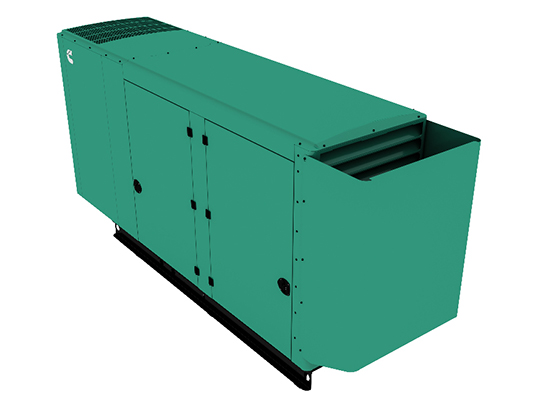With the growth of the Indian economy, the heating, ventilation, and air conditioning (HVAC) industry is growing rapidly, because businesses and organizations are using these systems to control the temperature, humidity, and air quality in buildings and homes. As a result, there is a growing demand for trained professionals who can install, maintain, and repair HVAC systems, creating new job opportunities in the HVAC sector. This article will provide an overview of the HVAC industry and the career opportunities it presents, including the key skills and personal attributes that can be beneficial for individuals interested in pursuing a career as an HVAC technician. It will also discuss the potential career paths and progression opportunities for HVAC technicians, as well as the skill training program of Electronics Sector Skills Council of India (ESSCI) for the HVAC sector.
Let’s discuss about HVAC
HVAC stands for heating, ventilation, and air conditioning. These systems are used to control the temperature, humidity, and air quality in buildings and homes, and are critical for maintaining comfortable and healthy indoor environments. HVAC systems typically consist of a network of ducts, vents, and fans, as well as heating and cooling equipment such as furnaces, air conditioners, and heat pumps. These systems use a variety of technologies, such as air filters, thermostats, and dampers, to control the flow of air and regulate temperature and humidity. HVAC systems are typically installed and maintained by trained professionals known as HVAC technicians, who use specialized tools and equipment to diagnose and fix problems with these systems. HVAC systems are essential for maintaining the comfort and safety of buildings and homes, and HVAC technicians are trained to install, maintain, and repair these systems.
What an HVAC technician does?
HVAC technician is a trained professional who specializes in installing, maintaining, and repairing heating, ventilation, and air conditioning systems in buildings and homes. These systems are designed to control the temperature, humidity, and air quality in indoor environments, ensuring that they are comfortable and safe for occupants. As an HVAC technician, you would be responsible for a wide range of tasks, including inspecting and testing HVAC equipment, diagnosing and troubleshooting problems, cleaning and replacing filters, and performing regular maintenance and repairs.
They use a variety of tools and equipment to diagnose and fix problems with HVAC systems, including test meters, soldering irons, and refrigerant recovery machines. You may also assist customers with selecting and installing new HVAC systems, and provide training and support as needed. HVAC technicians typically have a high school, diploma and complete a technical training program.
Career Opportunities as an HVAC Technician
The demand for HVAC technicians is growing in India, as more and more buildings are being constructed and the need for comfortable and safe indoor environments increases. Additionally, the government is taking steps to improve building codes and energy efficiency standards, which is driving demand for HVAC systems that are designed to meet these requirements. This growth in the HVAC industry is creating new job opportunities for trained technicians who can install, maintain, and repair these systems. In addition to the construction industry, there is also a growing demand for HVAC technicians in the service and repair sector, as more and more buildings and homes require regular maintenance and repairs to their HVAC systems. Overall, the growing demand for HVAC services in India presents a range of exciting career opportunities for individuals with the right skills and experience. ESSCI designed a special qualification pack for HVAC technician with minimum educational qualification and training. The ESSCI also offers certification programs that can help individuals to demonstrate their skills and advance their careers in the HVAC industry.
Skills for an HVAC technician
There are several personal attributes that can be beneficial for individuals interested in pursuing a career as an HVAC technician. Some of the most important qualities for this role include:
- Technical expertise: As an HVAC technician, you will need to have a strong foundation in electronics, refridgeration and mechanical systems, and a good understanding of how heating, ventilation, and air conditioning systems work. This may involve having a degree or certificate in a relevant field, such as HVAC technology or mechanical engineering.
- Problem-solving skills: HVAC systems can experience a wide range of technical issues, and as an HVAC technician, you will need to be able to diagnose and fix problems quickly and effectively. This requires strong problem-solving skills, as well as the ability to think critically and logically.
- Attention to detail: HVAC systems are complex and require careful attention to detail to operate and maintain properly. As an HVAC technician, you will need to be able to pay close attention to the details of your work and ensure that every aspect of an HVAC system is functioning correctly.
- Customer service skills: In many cases, you may be working directly with customers who are using HVAC systems in their homes or buildings. As an HVAC technician, you will need to be able to provide excellent customer service, including answering questions, providing training and support, and addressing any concerns or problems that customers may have.
Some aspects of an HVAC technician’s job may involve physical labor, such as lifting and carrying heavy equipment, working in tight spaces, or standing for long periods of time. You will need to be in good physical condition and able to handle the demands of the job.
Career Progression of a HVAC technician
The career progression of an HVAC technician may vary depending on the individual’s experience, skills, and interests, as well as the specific organization they work for. However, there are generally several career paths that an HVAC technician can pursue. Some possible career progression options for an HVAC technician include:
- As you gain experience and expertise as an HVAC technician, you may be able to move into more senior roles within the company you work for. This could involve taking on additional responsibilities, such as managing a team of technicians, training new employees, or working on more complex projects.
- To advance your career as an HVAC technician, you may choose to pursue additional certification or training in a specific area of expertise, such as energy-efficient HVAC systems or refrigeration. This can help you to become more specialized and enhance your value as an employee.
- As the HVAC industry continues to grow and evolve, there may be opportunities to move into other fields that are related to HVAC, such as energy management, building automation, or environmental engineering. This could involve changing careers or pursuing additional education or training.
Starting your own HVAC business
With sufficient experience and expertise, you may decide to start your own HVAC business, providing services to customers in your area. This can be a challenging but rewarding career path, allowing you to be your own boss and work on your own terms. To start your own business, you will need to take several steps, including:
- Develop a business plan: Before you start your business, it is important to create a detailed business plan that outlines your goals, target market, and strategies for success. Your business plan should include information on your target customers, your pricing and marketing strategies, and your plans for growth and expansion.
- Purchase the necessary equipment and supplies: To operate your HVAC business, you will need to have the right equipment and supplies. This may include tools, diagnostic equipment, parts and materials, and any other items that you need to perform your services.
- Market your business: To attract customers, you will need to market your business effectively. This may involve creating a website, advertising in local publications, networking with other professionals, and using social media to promote your services.
- Provide excellent customer service: To succeed as an HVAC business owner, you will need to provide excellent customer service. This may involve responding promptly to customer inquiries, offering personalized advice and recommendations, and ensuring that your customers are satisfied with your work.













